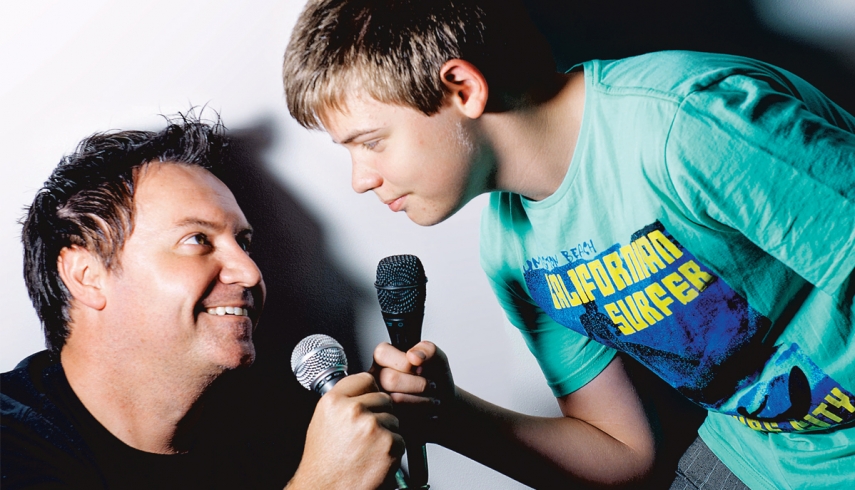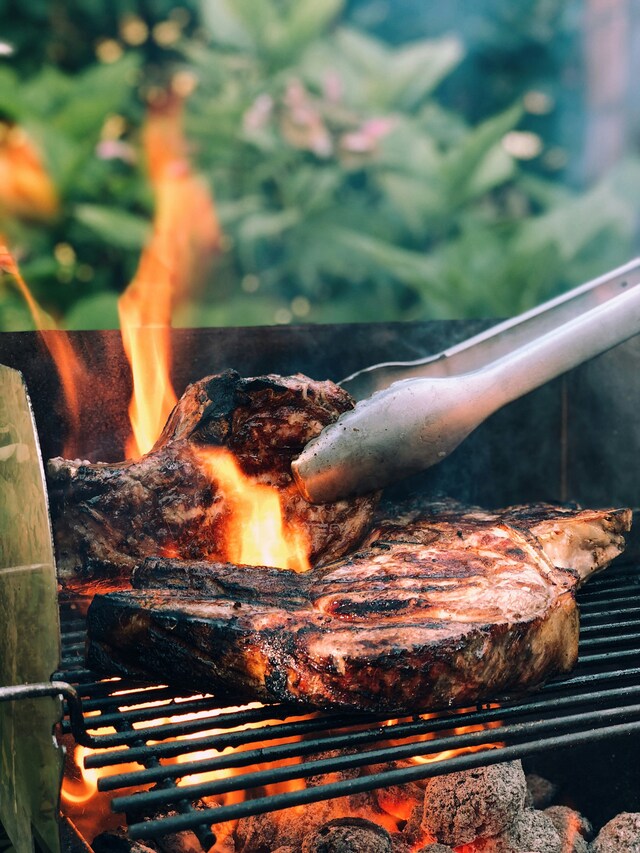Hecklers, hubris and humiliation; being a comedian isn’t all it’s cracked up to be, writes Ben Cameron.
Every job has its pitfalls, but for those employed to make us laugh, setbacks can be a lot more upsetting than your standard paper cut or computer breakdown.
There are the hecklers, the awkward silence when a joke fails to ignite, and even prejudice from fellow comics. Doug Chappel has experienced the lot.
‘‘The biggest hurdle in the comedy industry was the prejudice. There was a real social class thing, which I’d never experienced before,’’ he says.
‘‘Not from the audience, but from other comedians. A lot of them come from middle to upper-class backgrounds. The other comics would make me feel embarrassed and ashamed to be working-class.
‘‘Most of the comedians had come from uni so I was pretty different to everybody else. A lot of talking behind my back. There still is, but it’s like any job.’’
However, the sour notes behind the mic have been integral to sharpening his schtick, he believes.
‘‘Everyone has bad gigs … and that’s how you become a better comic. You don’t learn anything from good gigs. Bad gigs make you look inside yourself.’’
Despite the barbs, Doug remains drawn to the sheer euphoria of making an entire room lose it with laughter.
His approach is pretty simple. He spins yarns rather than distribute witty one liners with machine-gun precision.
‘‘I like to tell stories, stories about my life,’’ he says. ‘‘It makes you look inside yourself.’’
Doug admits it was never his dream to be a stand-up comic. Now an established funnyman after 16 years in the game, He caught the comedy bug by accident at the Esplanade Hotel in StKilda at an open mic night.
Unemployed at the time with no real direction, his life suddenly found one the moment he walked on stage.
‘‘I didn’t have any real goals,’’ he says of that night, dressed from head to toe in a tracksuit and gold jewellery. ‘‘I just did it to impress my friends.
‘‘I remember Dave O’Neill telling me I’d changed so much [since that night]. He said the first time he saw me he went and locked his car.’’
Comedy is now in the family, with Doug’s son Tyson performing stand-up and recently rehearsing for a show on ABC3.
Tyson says the old man has been a great sounding board for advice, and has helped shape his routine for an older audience.
‘‘I like watching my dad and the way he gets the crowd laughing and clapping, plus he teaches me a lot about comedy,’’ Tyson says. ‘‘I’ve worked on my facial expressions and timing.
‘‘When I watch myself back on video I notice different things I could do better and I try to improve.
‘‘Sometimes you see people’s faces and you can get a little nervous, but I just focus on my routine. But sometimes it’s hard to make things funny.’’
Doug says his routine is a delicate balancing act between hitting the mark without breaking hearts.
‘‘I’d like to be more honest,’’ he says. ‘‘But if you’re too honest you can hurt people also. You have to have that fine line between being honest and hurting those you care about.’’
While Doug’s career began at the pub, Tina Macumber’s comic education started at Bacchus Marsh Secondary College.
‘‘I used to tell funny stories in most of my classes. I’d pretend the students were my audience,’’ she says.
‘‘The table was my stage and the teacher was a heckler who kept interrupting my performance!’’
It wasn’t until she got into hosting sporting events that people suggested she give comedy a serious go.
‘‘My older bro actually gave me the push I needed,’’ she says. ‘‘After a couple weeks of seeing comedy, I found the courage to put my name down and I haven’t looked back.’’ Also a storyteller, she says every bad experience is another potential gag for the repertoire.
‘‘The worst gig I ever did was in Bacchus Marsh. I was asked to perform at a Relay For Life event at Maddingly Oval.
‘‘There were about 80 people there, but the room was dead silent for the first eight minutes.
‘‘I got a couple of chuckles, but it was just one of those things. The same material killed it in most rooms, but no one was laughing that day. I completely bombed. But the good news is, I took that experience and turned it into material.’’
She says there is no such thing as a guaranteed laugh, and she cites respected female comedian Fiona O’Loughlin as one who has suffered the fate of silence and given her support.
‘‘You’re not going to nail every gig,’’ Macumber says, ‘‘but it doesn’t mean you’re not funny. You just need to be strong and get back out there to do it all over again.
‘‘She [O’Loughlin] said to me that that story [which bombed] was absolutely hilarious; she loved it. As shit as things may be, someone will always find it funny.’’
A keen sportswoman, Macumber says the feeling of nailing a gig is like kicking a goal or hitting the winning runs in a final to win (‘‘It’s an amazing feeling, sometimes euphoric’’), and like sport, comedy is a male-dominated industry.
To alter the imbalance, she runs a comedy room in Carlton that has a strict a 50/50 gender split.
‘‘Women are the minority so I think they do have to work harder in some cases,’’ she says. ‘‘If you were to go and check out a comedy night with 10 comics on the bill, most probably there would be nine males and one female. Automatically there’s a lot of pressure on that female to perform well.’’
Like Tina, Jason Carstens was the class clown who was always destined for comedy in some shape or form, but that’s where the similarities end. He likes to invent his comedy, rather than recall old stories.
‘‘Being safe is not one of my motivators,’’ he says. ‘‘I seek the spontaneous, uncontrived belly laugh.’’
He splits comedy into two categories: creative and re-recreative – and he’s definitely the former.
‘‘Re-creative is the Seinfeld type that reminds you what you did yesterday and you can yell out, ‘it’s funny because it’s true’,’’ he says.
‘‘If somebody ever yelled that out at one of my gigs I’d seriously consider giving it away.
‘‘I find that stuff easy and cheap. I like to be creative and invent silly scenarios and punchlines.’’
While he brought along 20 of his closest friends for his first-ever gig, he says the laughter of a complete stranger is the best indication of success.
‘‘Your friends or your family’s bias is not the measure. Comedy is a pure sport, like cricket. You can’t say you batted well when the papers show you made two runs.
‘‘Let the crowd be the judge. If they laugh, it’s funny; if not, re-work it or lose it. Be real, be yourself, be likeable.
‘‘And try to stay fresh, even if your material doesn’t change much. I did it all so much I had rope burn,’’ he says.
‘‘Old rope is a term for your tried and true material. ‘I remember a friend reminding me that each gig is a new crowd and what is old to me was new to them.
‘‘From then on I adopted the attitude with each gig that I deliver every gag as though I had written it last night and just for them alone.’’
He says the buzz keeps him coming back.
‘‘It feels nice to know that for 10 minutes to an hour you can take people away from mundane reality and day-to-day problems,’’ he says.
‘‘While I’m up there they are mine and safe for a while. When I’m done they can go back to what I hope is now a happier place than what it was before, even fleetingly.
‘‘Laughter truly is the best medicine.’’







